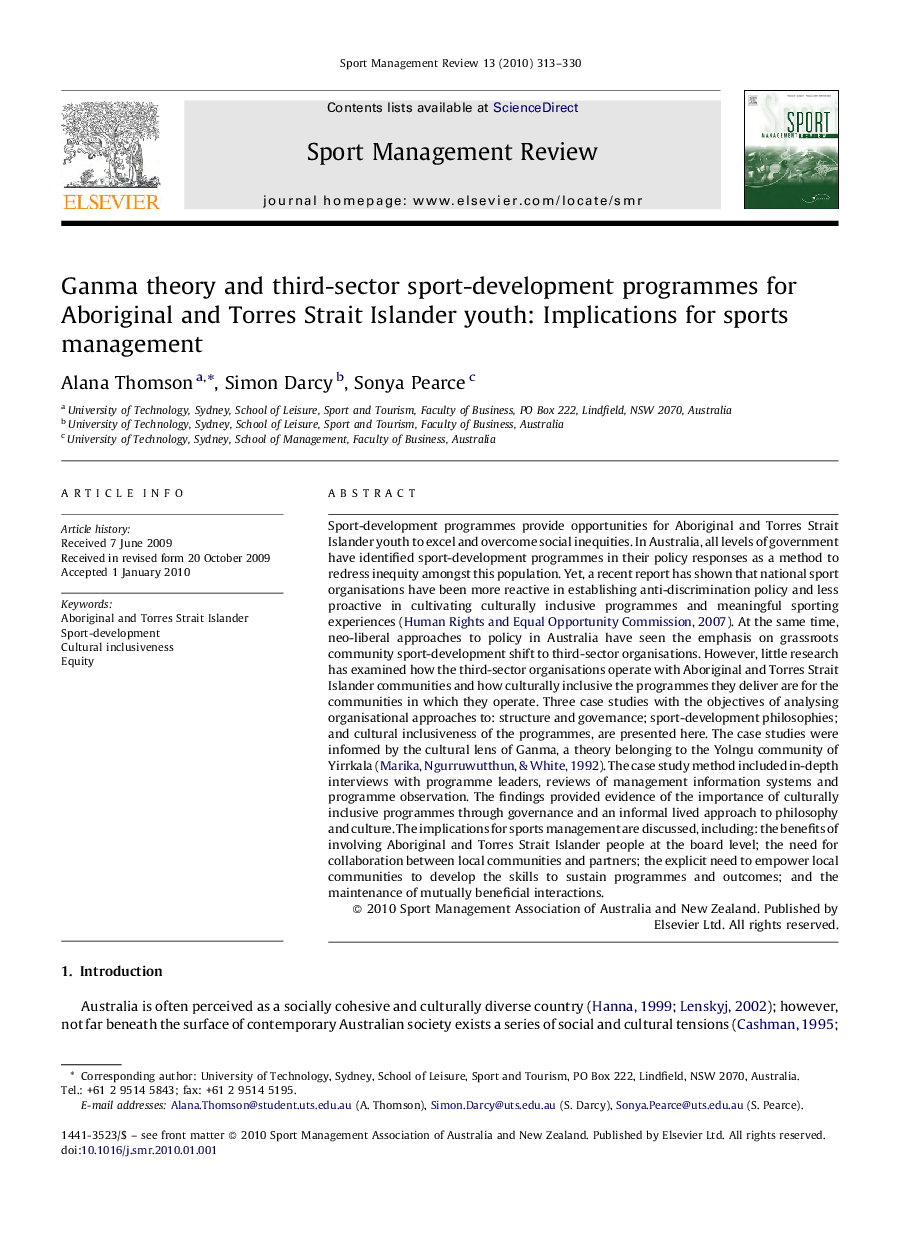| کد مقاله | کد نشریه | سال انتشار | مقاله انگلیسی | نسخه تمام متن |
|---|---|---|---|---|
| 141167 | 162830 | 2010 | 18 صفحه PDF | دانلود رایگان |

Sport-development programmes provide opportunities for Aboriginal and Torres Strait Islander youth to excel and overcome social inequities. In Australia, all levels of government have identified sport-development programmes in their policy responses as a method to redress inequity amongst this population. Yet, a recent report has shown that national sport organisations have been more reactive in establishing anti-discrimination policy and less proactive in cultivating culturally inclusive programmes and meaningful sporting experiences (Human Rights and Equal Opportunity Commission, 2007). At the same time, neo-liberal approaches to policy in Australia have seen the emphasis on grassroots community sport-development shift to third-sector organisations. However, little research has examined how the third-sector organisations operate with Aboriginal and Torres Strait Islander communities and how culturally inclusive the programmes they deliver are for the communities in which they operate. Three case studies with the objectives of analysing organisational approaches to: structure and governance; sport-development philosophies; and cultural inclusiveness of the programmes, are presented here. The case studies were informed by the cultural lens of Ganma, a theory belonging to the Yolngu community of Yirrkala (Marika, Ngurruwutthun, & White, 1992). The case study method included in-depth interviews with programme leaders, reviews of management information systems and programme observation. The findings provided evidence of the importance of culturally inclusive programmes through governance and an informal lived approach to philosophy and culture. The implications for sports management are discussed, including: the benefits of involving Aboriginal and Torres Strait Islander people at the board level; the need for collaboration between local communities and partners; the explicit need to empower local communities to develop the skills to sustain programmes and outcomes; and the maintenance of mutually beneficial interactions.
Journal: Sport Management Review - Volume 13, Issue 4, November 2010, Pages 313–330